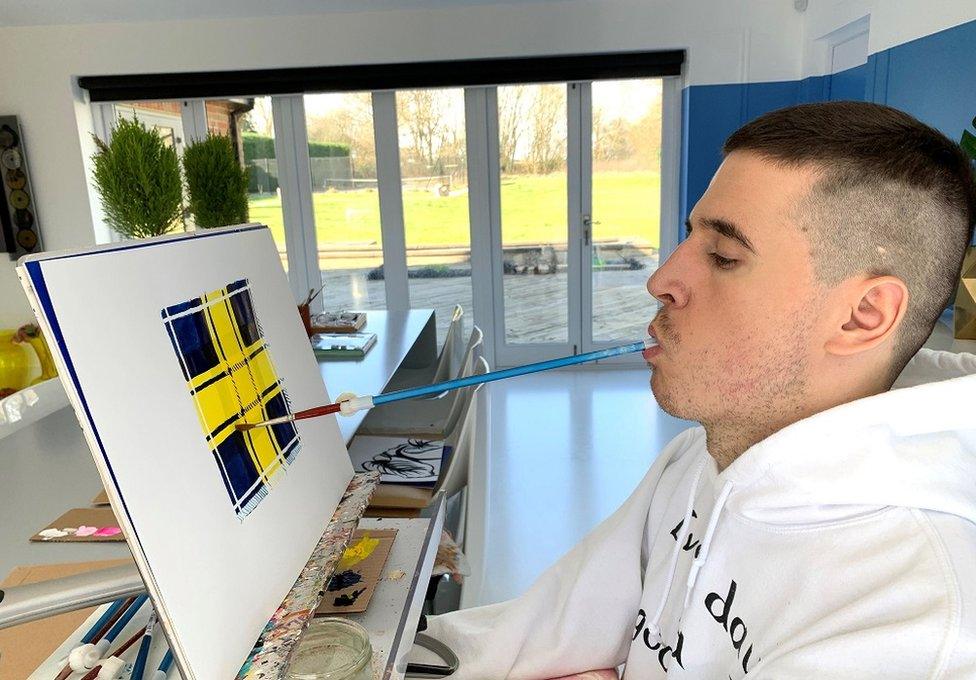Mouth painting inspired by rugby star Doddie Weir
- Published

Henry Fraser learned to paint with his mouth after his accident.
An artist who paints with his mouth after being left paralysed has created artwork to raise funds for the charity set up by Scots rugby star Doddie Weir.
Henry Fraser, who is paralysed from the neck down, was inspired by the rugby legend who has motor neurone disease.
He said his take on the "Doddie 5 Tartan" embodied what it meant to "turn life's hardships on their head".
Mr Fraser hopes the funds raised from his designs help to change the lives of those suffering with the disease.
The 30-year-old artist played rugby from a young age until he was 17 when he suffered life-changing injuries from a diving accident in Portugal in 2009.
His love of art, which he had throughout his childhood, was rekindled in 2015 after he learned to paint with his mouth.
Mr Fraser painted his his Doddie tartan piece to pay tribute and raise funds for his hero, Doddie Weir
Doddie Weir, a former Scotland international rugby star, was diagnosed with MND in 2016, which led him to set up the My Name'5 Doddie foundation.
His positive outlook and upbeat nature made him a "huge inspiration" to Mr Fraser.
He said: "Like Doddie, I was an active man prior to my accident. Having that taken away so suddenly was completely life-changing.
"It forced me to re-evaluate and recalibrate absolutely everything and meant transforming my physical strength into mental strength.
"Although we are going through two very different things, I really look up to him as a role model," he said.
Henry Fraser hopes the funds raised from his designs will help change the lives of those suffering with the disease
Mr Fraser has hundreds of designs, from famous sportspeople to exotic animals and landscapes.
His , with all proceeds going directly to the My Name'5 Doddie Foundation.
"The painting isn't intended to be perfect," said Mr Fraser.
"This painting is a reflection of two people who have battled something life-changing. I think the piece brings our experiences together.
"If I can change just one person's life through the funds we raise with these digital prints, then I'll know it's a job well done."
Jill Douglas, chief executive of the My Name'5 Doddie Foundation, said it was because of people like Henry that the organisation could "research into MND and try to give people living with this terrible disease some hope."